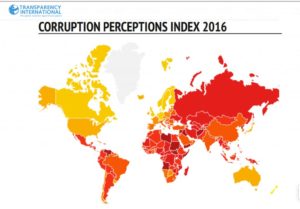Independent of the econometric methodology applied, we consistently find:
Immigration from corruption-ridden countries boosts corruption in the destination country.
Hence, the international legislators’ fear (as expressed in recent agreements by the G20 group) that immigration may cause a problematic inflow of corruption appears to be justified. Policy-makers will therefore have to take precautions to avoid this problem. However, the optimal response is not obvious. One possibility could be to restrict immigration by only selecting immigrants originating from non-corrupt countries. Alternatively, very careful checks ad personam could be conducted. The downside of this policy is that it could seriously restrict the inflow of migrants, which might not be optimal given that most OECD countries face a severe aging problem and are in need of immigration to keep their social security systems sustainable. An arguably better strategy could be to immunize the domestic population against a corrupt attitude brought into the country by some immigrants and thus preserve the state’s purposeful functionality. One way to achieve this is through better educating the domestic population of the detrimental effects brought about by corruption. This would both raise their awareness and yield a critical state of mind.
- https://PayPal.Me/lukeisback
"Luke Ford reports all of the 'juicy' quotes, and has been doing it for years." (Marc B. Shapiro)
"This guy knows all the gossip, the ins and outs, the lashon hara of the Orthodox world. He’s an [expert] in... all the inner workings of the Orthodox world." (Rabbi Aaron Rakeffet-Rothkoff)"This generation's Hillel." (Nathan Cofnas)

